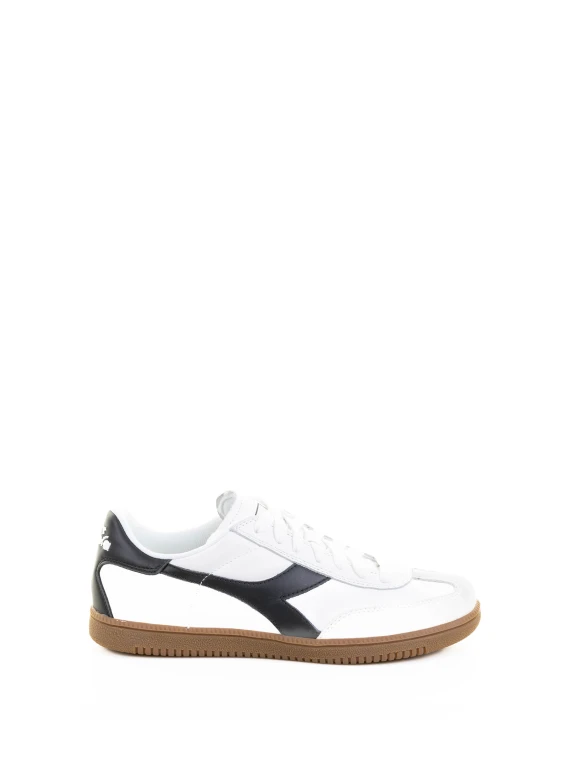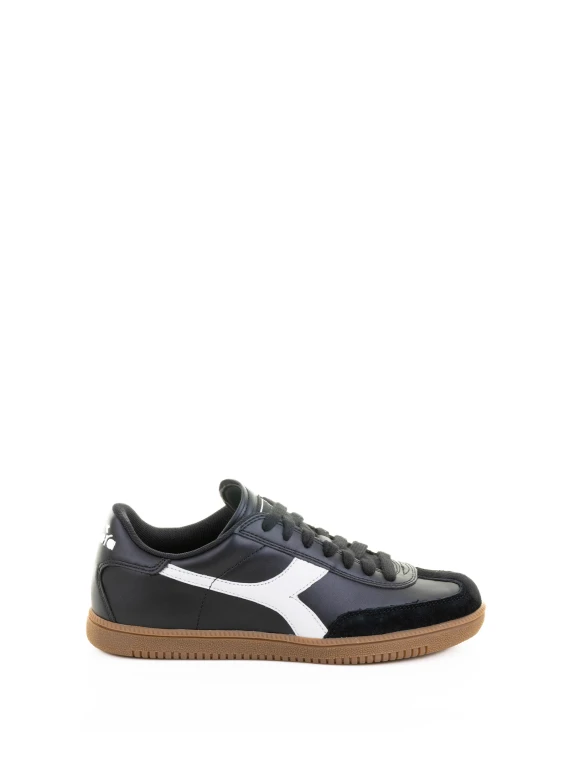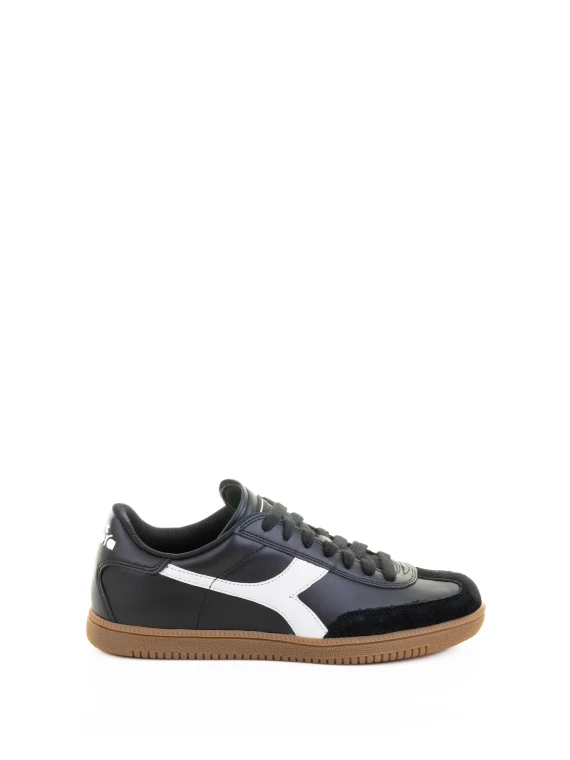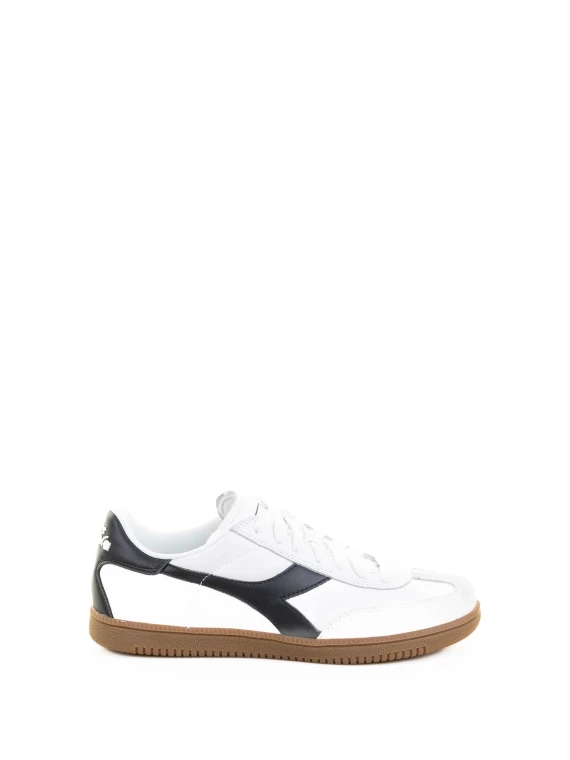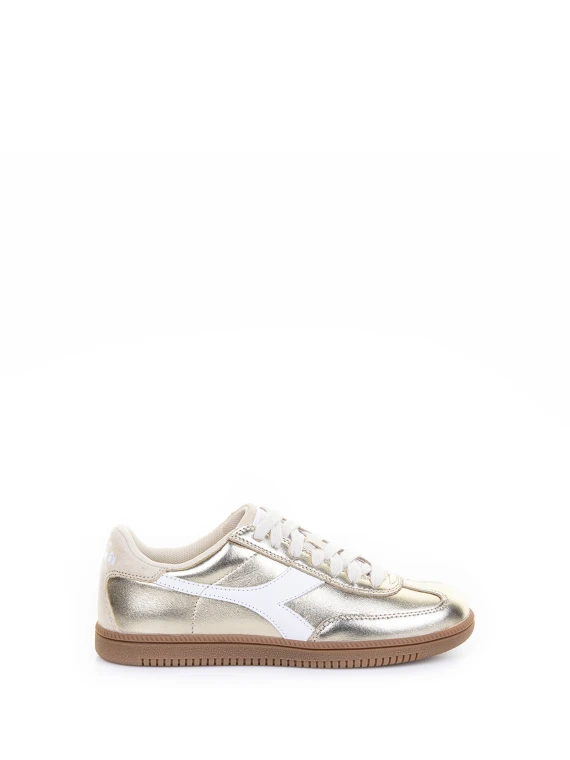DIADORA
The Venetian foothill area was known for shoe production, a tradition that began during the period of the Great War when, in the Trevigiano region, which found itself on the front lines, the production of military footwear spread to support the soldiers. The industry continued in the following decades, further developing and specializing. It is in this context that the company Diadora was born (in Caerano di San Marco, in 1948), as a company specializing in mountain boots: the founder Marcello Danieli, also called Ottavio because he was the last of eight siblings, aided by his wife and a partner, Rinaldo Menegon, began artisanal production. Initially, they made work shoes for fields and loggers. There was no brand yet, and the leather was purchased in Tuscany; Danieli went around selling the product: within a few years, the shoe factory would be known for its quality, first in Veneto and then throughout Italy. The name was suggested to Danieli by one of his representatives: Diadora was the ancient name of Zara, the Dalmatian city where he was born and from where he had to flee as a refugee to Italy following the city's cession to Yugoslavia. Some also argue that it was inspired by a historic sports club founded in 1898 in Zara and later re-founded by exiles in 1962 in Lido di Venezia, the Circolo Canottieri Diadora. Etymologically of Greek derivation, Diadora has a double meaning: the first is linked to the Dalmatian area of Zara (more precisely, Diadora referred to someone from Zara); the second meaning derives from the combination of the terms Dia and Dora, which in Italian can be translated as 'sharing gifts or honors'. In January 1967, the two partners separated, and the Diadora Shoe Factory was born. With the prosperity of the 1960s that swept Italy, Diadora, thanks to the purchase of new machinery and American production patents (such as pressure casting), evolved into a real factory, with production on an industrial scale, while still maintaining excellent quality and national renown. But the 1960s also brought increased attention from Italians to the world of sports, prompting Diadora to add ski boots and après-ski boots to their production line. In 1970, the company won the prize for mountain footwear from the International Academy of High Fashion in Turin. In 1976, it established the Golden Athlete Award, a recognition for the best athletes and sports professionals worldwide, which became the most important sports event of its kind over about fifteen years. In the 1970s, particularly with the Montreal 1976 Olympics, the brand (initially the Olympic rings; from 1973 it took the form of the winged arrow) established itself in the world of sports through the sponsorship of some famous tennis and football champions, including Björn Borg, Roberto Bettega, Marco Tardelli, Walter Zenga, and Giuseppe Gentile, followed by athletics, from Gabriella Dorio to Ben Johnson. This sponsorship campaign propelled Diadora internationally: production exceeded three million pairs, distributed through over 3,500 retail outlets in 45 countries worldwide. Thanks to Diadora (where Marcello Danieli's three sons, Roberto, Pierluigi, and Diego, had been working for some time), the fashion of wearing tennis shoes outside of sports contexts emerged among young people as a casual accessory. Also in the 1970s, there was a diversification of the range of sponsored sports, including basketball, volleyball, boxing, fencing, motorsports, motorcycling, cycling, and pentathlon, but especially the creation in 1981 of the Diadora Research Center in collaboration with bioengineers and orthopedic specialists from the Polytechnic of Don Gnocchi in Milan, which brought Diadora significant technical innovations and cutting-edge materials. Today, Diadora is one of the major brands in the world of sports and is also known through the Utility Diadora brand, leading in the production of safety shoes. In 2020, the Research Center, temporarily closed in the 1990s, was reopened, and in 2022, a technical collaboration for research was initiated with the marathon runner Massimo Stano, gold medalist at the 2021 Tokyo Olympics, and in 2023, with the Italian sprinter Samuele Ceccarelli. In 2021, Diadora launched Equipe Atomo, the company's historic running shoe, which after 30 years, was reintroduced, studied, developed, and produced in Italy.

